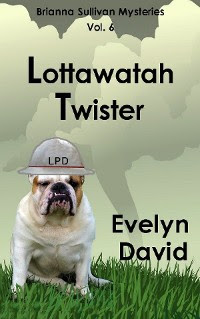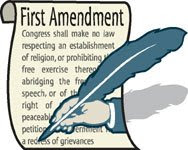Whose Story Is It Anyway?
One of the first rules taught to new authors is to write about what you know. Now clearly, I don’t personally know any murderers (or at least I don’t think I do). But in our books, the lives led by Mac Sullivan and Rachel Brenner are within the realm of my comprehension. I may not have an Irish wolfhound for a pet, but I do have a dog and understand the mutual devotion that develops between animal and owner. My characters, even the villains, have traits, habits, and motivations that I’ve encountered in real life. Maybe not to the degree that would push someone to kill, but my fiction writing is grounded in reality.
But that’s different than writing a book on a real-life event where the people involved are still alive. Laura Lippman, in her critically acclaimed novel, What the Dead Know, encountered that criticism when she based the storyline on a true-life mystery that had occurred 30 years earlier in a nearby town. She answered those critics when she explained, “Still, I hope that readers understand the difference between writing stories based on true incidents, and writing ones that are inspired by asking, “What if . . . .” With that question, real life is left behind and fiction begins.”
I accept that rationale and Lippman certainly made significant changes in her characters to distinguish them from the family in the real-life tragedy.
But this week, I read a New York Times article on Julie Myerson, a British novelist, who has written a memoir about her teenage son’s drug addiction. The boy, thrown out of the family home when he was 17, “denounced his mother as insane…for exploiting and exaggerating” his drug troubles. Myerson, who encountered a firestorm of criticism when the book was published in England, now claims that had she known the criticism she would receive, “I wouldn’t have done it.”
To me, though I haven’t read her book, Myerson violated a couple of sacred rules. First, you don’t make money off your children’s troubles. Even though she is writing from the perspective of the parent, the bottom line is that her child was going through Hell and that’s not a money-making venture. Her son gave an interview to The Daily Mail where he said: “What she has done has taken the very worst years of my life and cleverly blended it into a work of art, and that to me is obscene.”
She argues that it’s important that the public understand the nightmare of teenage drug use. But since it was clear that her son objected – this is not a guide that Myerson should have written. Is there a need for a book to help parents going through a similar experience? Probably. But since it was predicated on events in her son’s life, it was not her decision to make unilaterally.
And there is always the concept, certainly promoted by my own mother, the original Evelyn, that you don’t air your dirty laundry in public. Why would you want to expose your child to public examination and possible ridicule?
Some argue that Myerson was the victim of sexism. That mothers are held to a higher standard. Not by me. I would have the same objections had the father written this tome.
I understand that as an author, sometimes when you are in the midst of a crisis, it’s the only topic you feel you can write about. And perhaps it would have been cathartic for Myerson to write about her anguish. The difference is that this story was appropriate for her personal journal – not for publication. The cost of this book for her family may well be incalculable – regardless of any royalties she may accrue.
Evelyn David
Murder Takes the Cake by Evelyn David
Murder off the Books by Evelyn David
http://www.evelyndavid.com










Probably not a good idea to write about your kids, especially if they happen to be troubled. That doesn't mean that you can't write a fictional story that uses some of what you learned from you child's problems.
My book Wishing Makes It So was based on something that happened in our family a long time ago but I fictionalized everything–and made it far more horrific. None of the characters are recognizable because I didn't use any of the real people–only used the event was was pretty bad as a basis for the story.
Marilyn
http://fictionforyou.com
I also grimace when I read some of the personal blogs out on these "interwebs" wherein parents constantly out their children and exploit their lives and experiences to fill up some typed space. It's terribly selfish and inconsiderate. And, really, people do it all the time on the net with details about not just their kids, but all their loved ones and friends–even their enemies–and don't seem to give a minute of thought to what effect this might have on the person who isn't choosing to share.
Excellent post, Evelyn! Amen to that. Maggie